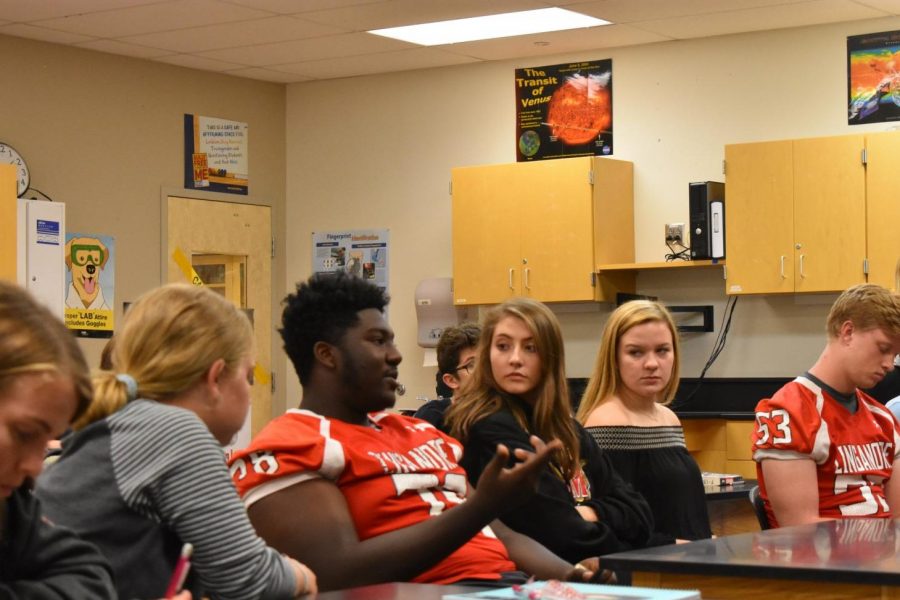Forensics class reads Bloodsworth to form opinion on death penalty: Photo of the Day 10/1/2018
Senior Tre Brisco volunteers his opinion during class discussion.
October 2, 2018
On September 28, the Forensics class debated whether the death penalty should be legal. FCPS Superintendent Dr. Theresa Alban and FCPS Secondary Science Curriculum Specialist Colleen Beall attended the discussion.
The students read the Maryland One Book Bloodsworth: The True Story of the First Death Row Inmate Exonerated by DNA Evidence by Tim Junkin to give them a better understanding of the process of conviction, death row, and exoneration. The story describes Kirk Bloodsworth and the nine years he spent in Maryland prison fighting his sentene before being released.
Beall believes the book gets students productively thinking about forensics. In the non-fiction story, Bloodsworth was convicted before DNA evidence was available. The conviction was based on flimsy witness testimony and careless police work. It was only after DNA was available, and Bloodsworth’s research from behind bars, that he was freed. Since the rape and subesequent conviction took place in Baltimore, the story is even more interesting to Marylanders.
“The reason I suggested Bloodsworth as a book to read in Forensic Science class is that it was a local case, and it focused on the development and use of DNA in forensics. I also felt that it would be valuable to analyze the missteps taken in the case.”
Ms. Jessica Baker, Forensics teacher, shared statistics from the Death Penalty Information Center. One eye opening fact is that it costs $51 million a year more to enforce the death penalty than it would cost to punish all first-degree murderers with life in prison without parole.
The students did have many opinions regarding death row and capital punishment. Throughout the debate, Baker posed many questions regarding Bloodsworth’s case, including the question of should there be a death penalty. Everybody had their own opinion. Some agreed that if DNA evidence is used it’s okay while others believe people should get a second chance.
Junior Graeson Ruch said, “It showed me a lot about the justice system and how it doesn’t always work and that sometimes you have to take it into your own hands to get free.”
Bloodsworth, who has now been free for 25 years, is a speaker for The Innocence Project, an organiztion that works to support wrongfully convicted prisoners.



